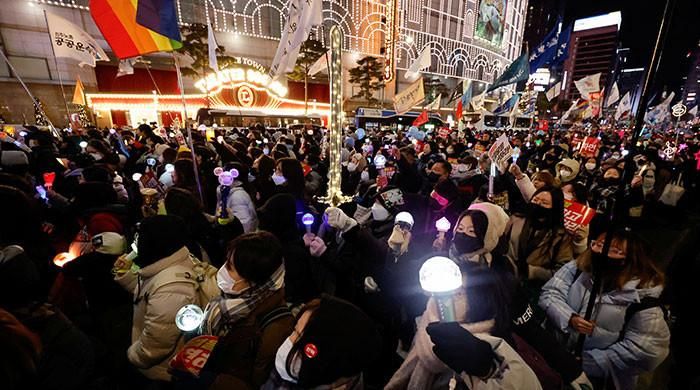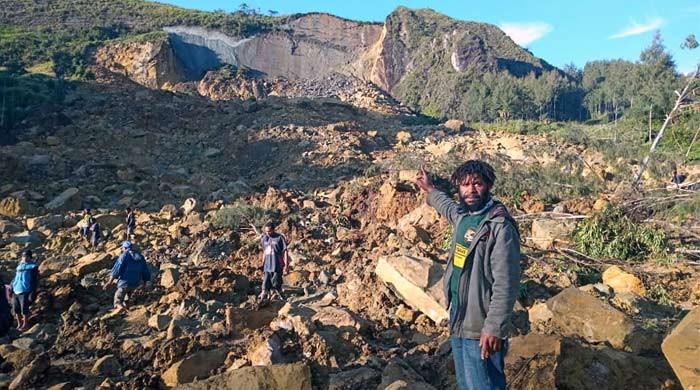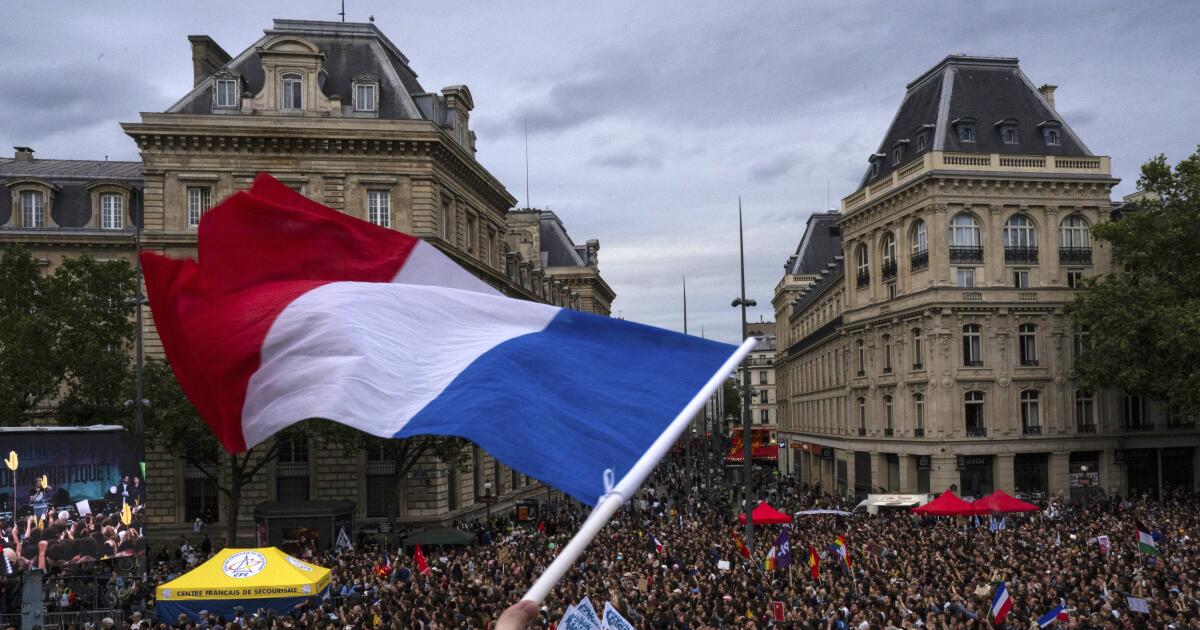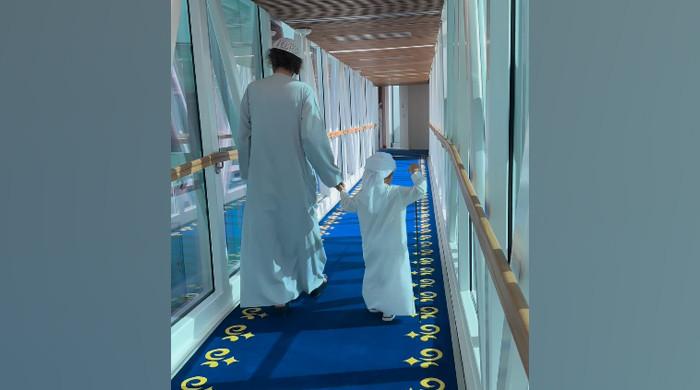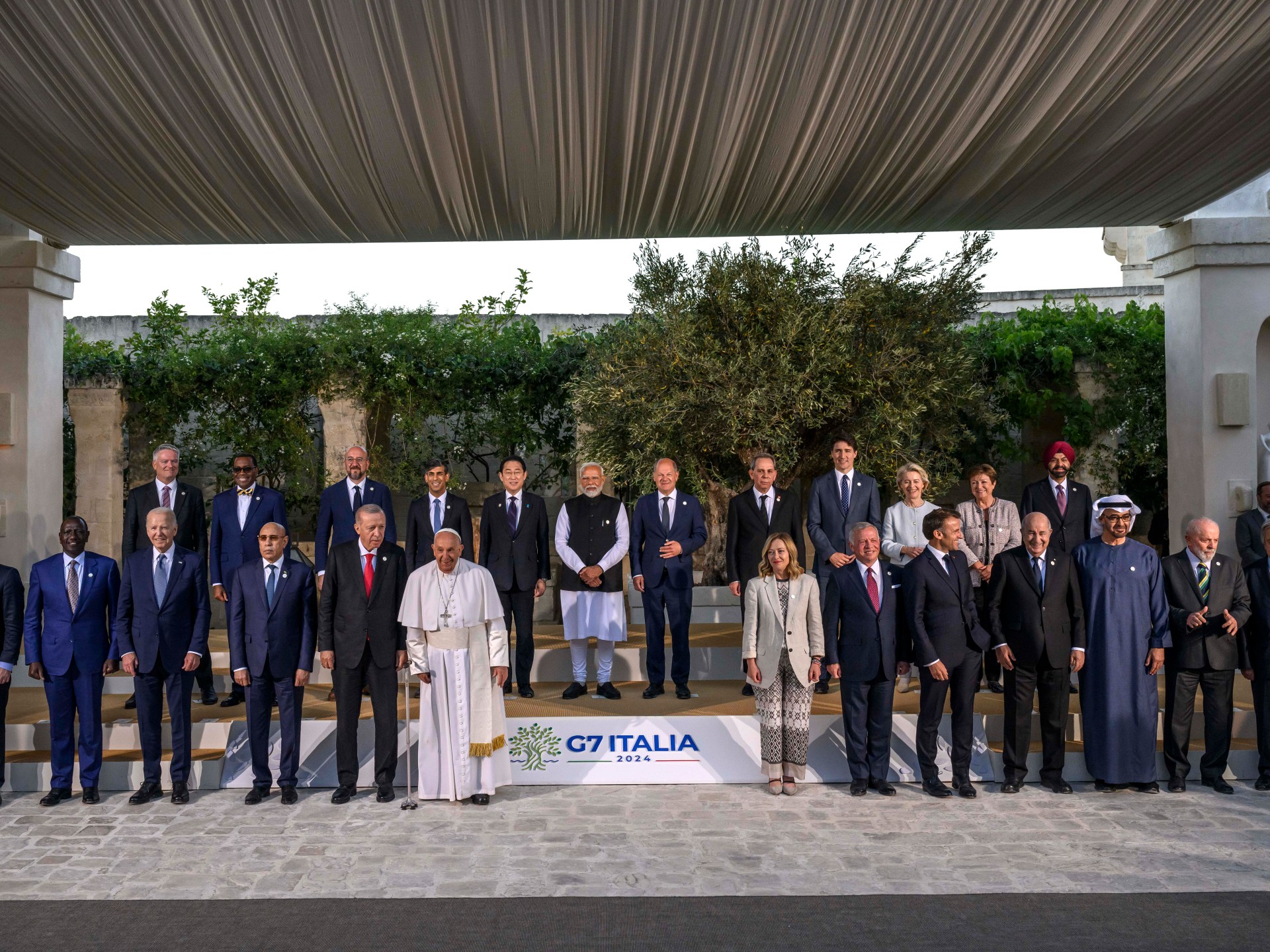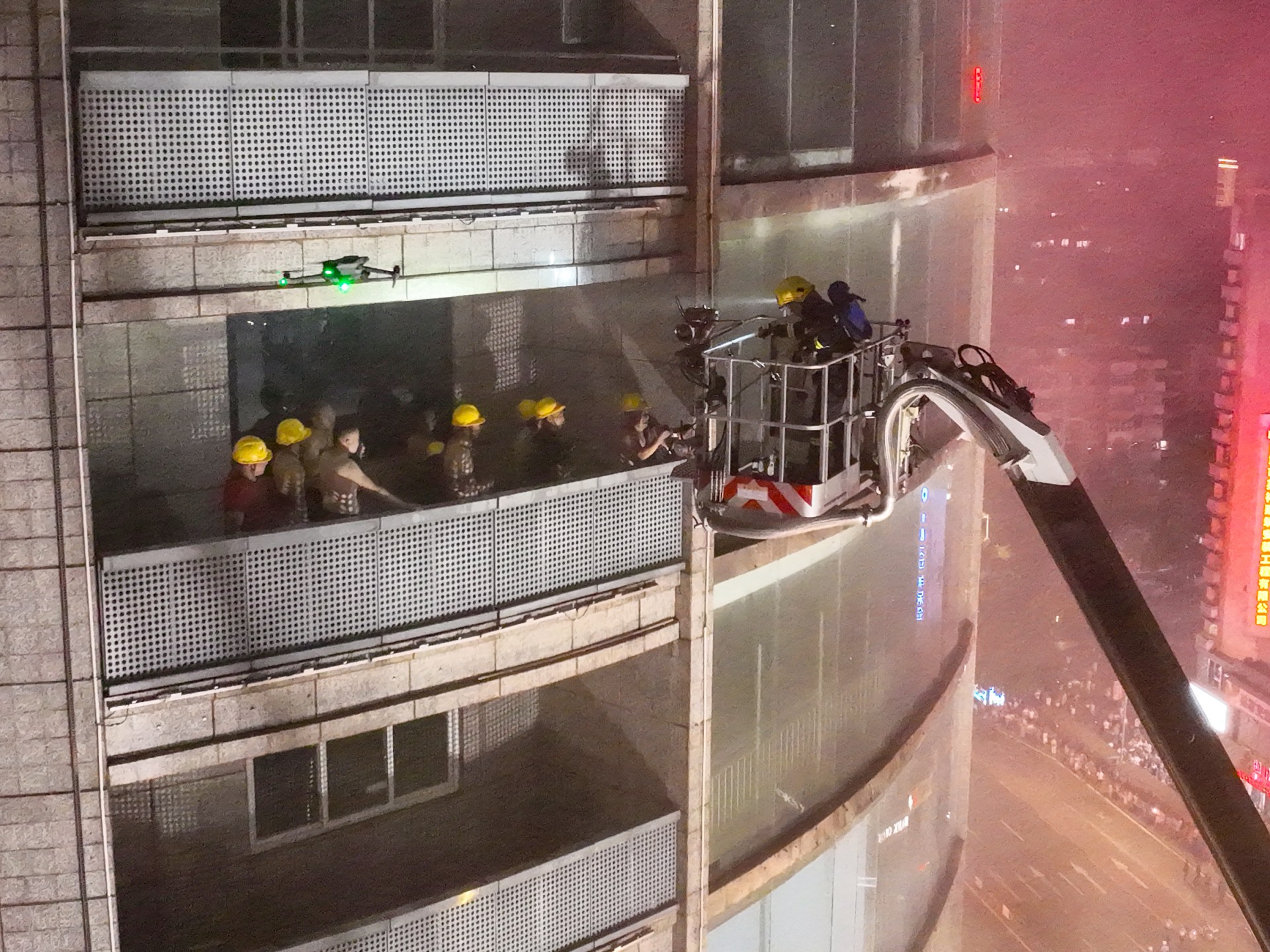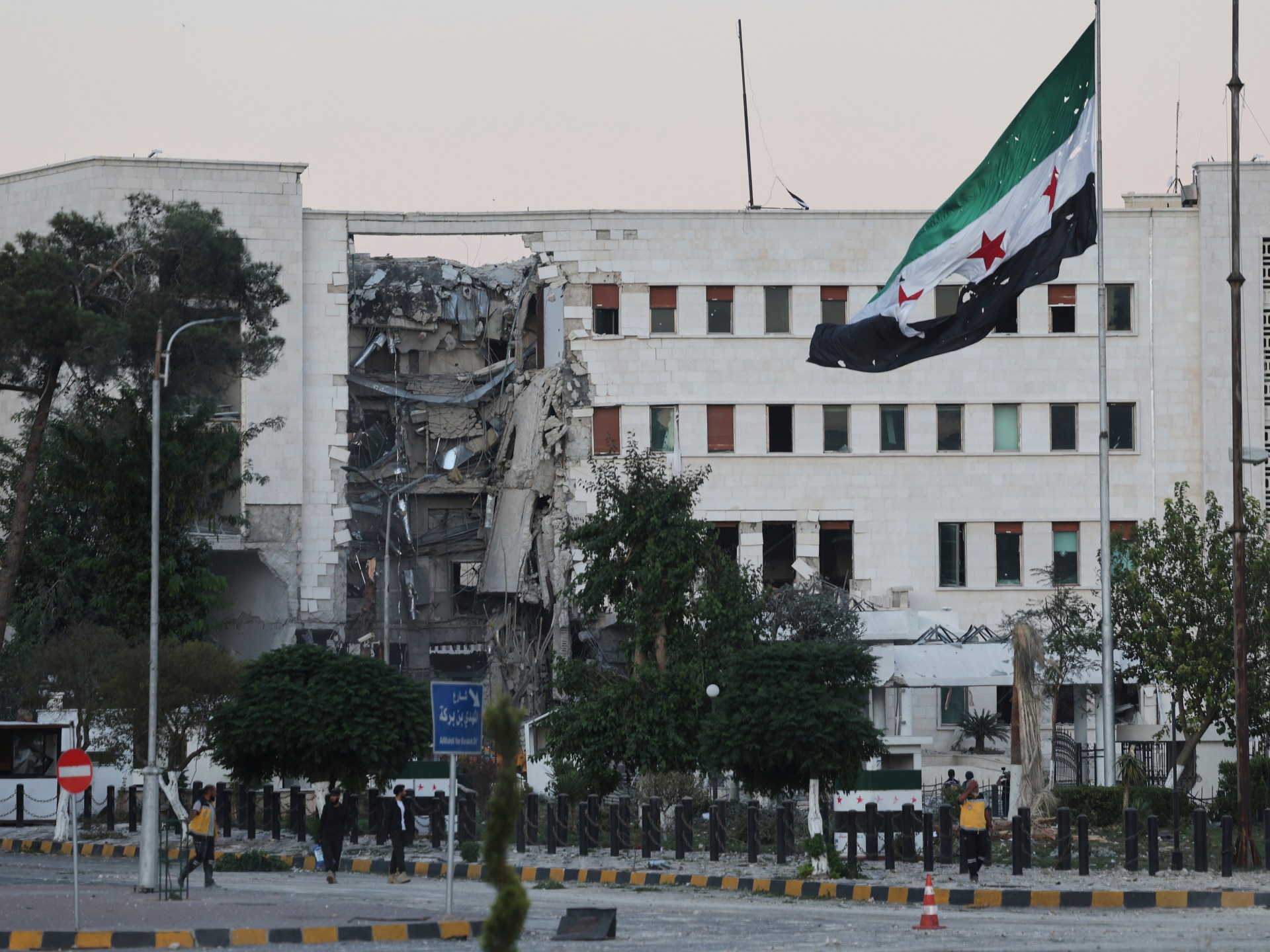SEOUL: A South Korean court has issued an arrest warrant for suspended President Yoon Suk Yeol, following his controversial attempt to enforce martial law during his presidency, investigators said Tuesday.
“The arrest warrant and search warrant against President Yoon Suk Yeol, requested by the Joint Investigation Headquarters, were issued this morning,” the Joint Investigation Headquarters said in a statement.
“No timetable has been set for future procedures,” he added.
Investigators probing Yoon over his martial law declaration sought the order on Monday after the suspended president failed to show up for questioning for a third time.
Yoon briefly suspended civilian rule this month, plunging South Korea into its worst political crisis in decades.
Parliament stripped him of his presidential duties over the action, but a constitutional court ruling is pending on whether the impeachment should be upheld.
The conservative leader also faces criminal charges for insurrection, which could lead to life in prison or even the death penalty.
The order was issued approximately 33 hours after being requested, which local media reported is “the longest time in history for an order hearing,” indicating that the court was debating how to proceed.
Although the order has been issued, it is unclear whether investigators and police will be able to carry it out.
The Presidential Security Service has previously refused to comply with three search warrants.
Police were deployed early Tuesday outside Yoon's residence in central Seoul, in a likely attempt to prevent clashes.
Both Yoon's supporters and protesters calling for his ouster have staked out his residence, and local media published footage of altercations between the two sides overnight.
Local media reported that an imminent arrest or search of the presidential residence was unlikely, as investigators would likely try to coordinate with the presidential security service.
Technically, anyone who obstructs the execution of an arrest warrant could be arrested.
Joint probe
Yoon is being investigated by prosecutors and a joint team made up of police, the Defense Ministry and anti-corruption officials.
A ten-page prosecutor's report seen by AFP claims that Yoon authorized the military to fire weapons if necessary to enter Parliament during his failed attempt to implement martial law.
Yoon's lawyer, Yoon Kab-keun, dismissed the prosecutors' report, telling AFP it was “a one-sided version that corresponds neither to objective circumstances nor to common sense.”
Yoon declared martial law in an unannounced televised speech on December 3, saying he aimed to eliminate “anti-state elements.”
Lawmakers rushed to parliament within minutes of the statement to reject it.
At the same time, heavily armed troops stormed the building, scaled fences, broke windows and landed by helicopter.
According to the prosecution's indictment report, Yoon told capital defense command chief Lee Jin-woo that military forces could shoot if necessary to enter the National Assembly.
The report also said there was evidence that Yoon had been discussing the declaration of martial law with senior military officials as early as March.
South Korea's political turmoil deepened late last week when Yoon's replacement, Han Duck-soo, was also impeached by parliament for failing to sign bills for investigations into Yoon.
Finance Minister Choi Sang-mok took over as the new acting president and was immediately thrust into disaster with the Jeju Air plane crash on Sunday that claimed 179 lives.

